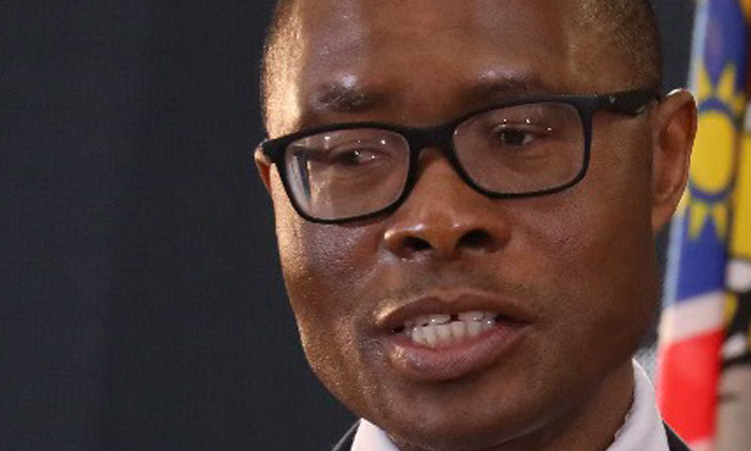To his credit, finance minister Iipimbu Shiimi brought cheer to many Namibians through his budget speech this week.
Tax exemption for low-income earners below N$100 000 comes into force after it was announced last year. So too does the burden of transfer costs being eased for house buyers acquiring property at N$1,1 million or less.
Lifting the ceiling of VAT registration for SMEs making less than N$1 million might sound substantial, but anyone running a small enterprise knows how quickly revenue of N$1 million can be reached.
The government would be well advised to revisit that amount and perhaps raise it to N$3 million if it really wants SMEs to play a meaningful role in job creation, rather than spend precious hours and money on senseless bureaucratic requirements that eat into their meagre revenue.
Pensioners will welcome the additional N$200 despite possible expectations of getting N$3 000 raised by president Hage Geingob in his new year’s message.
Even the Anti-Corruption Commission, which has been poorly funded for years, should have reason to smile: Their budget increased from N$82 million to N$106 million. This increased funding still raises questions on whether Namibia’s leaders have the political will to fight corruption or only act when faced with threats of global sanctions for failing to tackle organised crime. It’s hardly a coincidence that the ACC budget increase comes hot on the heels of Namibia’s greylisting as a haven for money laundering.
For many, those measures that put more money in people’s pockets will go a long way towards easing their suffering after years of relentless increases in the cost of living.
As Mahatma Gandhi said, “the true measure of any society can be found in how it treats its most vulnerable members”.
Shiimi tabled a record budget of about N$100 billion (from N$84,6 billion), including N$44,3 billion that will go to social sectors such as health, education and the youth.
For the most part, Shiimi’s remarks were on point but aspects of the budget effectively undermine his statements.
That the government will write off N$1,4 billion in tax liabilities incurred through the mismanagement of public enterprises is of grave concern without any sanctions or clear remedies that the irregularities will not be repeated.
Besides, the contradiction was apparent when Shiimi claimed the write-off will “enable the Namibia Revenue Agency to apply the law to all taxpayers equally”.
Public enterprise beneficiaries include the University of Namibia (Unam), TransNamib, the Namibia Broadcasting Corporation (NBC), New Era Corporation, the National Fishing Corporation of Namibia (Fishcor) and the Roads Contractor Company (RCC).
Except for Unam, all the listed beneficiaries have effectively been spoon-fed by the government for years and have abysmally failed to account for how they used billions of dollars.
Instead of making them account for their failure to run their affairs efficiently and prudently, Shiimi has effectively rewarded mismanagement, theft and gross abuse of the public’s money.
The RCC, for instance, has been operating on autopilot for the past five years with workers being paid for staying home, while a decision to shut it down lingers on.
Fishcor is essentially being rewarded for spawning the Fishrot corruption scheme estimated at more than N$3 billion.
The state-funded newspaper New Era and NBC have a legacy of mismanaging taxpayers money, as contained in just about every auditor general’s report.
Shiimi’s statement that “should any public enterprise accumulate tax liabilities going forward, treasury is not prepared to offer any support,” sounds utterly unconvincing in the absence of any consequences for thieving and erring parastatal top managers.
This also applies to the N$3 billion allocated to the Public Service Medical Aid Scheme, which has constantly been rocked by serious allegations of abuse.
Last year, auditing firm Deloitte raised the alarm that the state appears to have paid around N$1 billion to ‘ghost’ medical aid beneficiaries from 2020 to 2022.
Without reining in such obvious abuses, Shiimi will find it extremely difficult to convince critics that the budget is not mainly aimed at helping Swapo retain power this year.
Until the government successfully cuts out the wasteful and corrupt spending of tax revenue, no amount of budget increases will be helpful in addressing key needs of Namibia’s most vulnerable citizens.
It’s about time Shiimi and his colleagues use public resources well, instead of feeding voters crumbs and expecting to be rewarded for that.
Stay informed with The Namibian – your source for credible journalism. Get in-depth reporting and opinions for
only N$85 a month. Invest in journalism, invest in democracy –
Subscribe Now!






